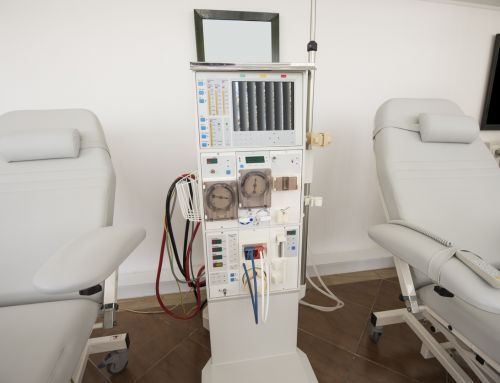From the moment I was diagnosed with kidney disease, I was fortunate to receive outstanding care and support from my providers. I know that it played a key role in my ability to get a transplant, as I live in an area with one of the longest wait times in the country. In fact, I was encouraged to get listed at multiple locations, ultimately receiving my transplant in another state. Unfortunately, many dialysis patients do not receive this level of coordinated care among their providers. 
From my own personal experience, I can tell you that one of the best ways to ensure patients receive a transplant is through a comprehensive, well-coordinated treatment plan, which involves all of a patient’s providers working together to ensure all of his/her needs are met. Thankfully, I have had a great deal of coordination in my own care both before and after my transplant, with my nephrologist, transplant team, and primary care physician working together to make sure they each have access to the right information.
The reality for many patients, though, is that their treatments are handled independently, with each seeking only to address only a single health condition or disease. Even though I did not suffer from other health issues while on dialysis, I still found myself keeping a notebook to help my own doctors stay on top of everything. Many patients need to be the one who shares the latest information on bloodwork, medications, appointments, and more with all of their doctors. Add in the fact that a considerable portion of kidney patients also suffer from diabetes or heart conditions, and things only get more complex.
Ultimately, this could have negative effects on a patient’s wellbeing, and severely limit their ability to receive a kidney transplant down the line. Because of this, ensuring that patients have a system in place for their doctors to coordinate and implement a treatment plan designed to improve their overall health rather than any one individual disease is vital. Doing so will go a long way toward improving a patient’s overall health and increasing their chances of receiving a transplant.
This fact is just one of many reasons that the BETTER Kidney Care Act, which was recently introduced and is currently working its way through Congress, is the right move to improve the quality of care available to kidney patients in the U.S. The bill would incentivize doctors to communicate more effectively and share important information regarding a patient’s treatments, medications, appointments, and more. Beyond these benefits, the bill also includes additional provisions aimed at improving patients’ overall health that they cannot currently get through Medicare, like access to dental services. Any risk of infection can lead to the rejection of a transplanted kidney. As a result, many patients are moved to the inactive waiting list for a transplant until dental care is secured. Many overlook the importance of dialysis patient access to dental coverage, which is not available in traditional Medicare.
The bill also includes extensive provisions relating to transplant education and counseling requirements, and provides benefits that will support patient’s eligibility for a transplant and help them stay on the waiting list. This way, transplantation can be an option for many more patients than might have otherwise been able to access it.
With this enhanced access to care coordination services, patients can have a much improved pathway toward stronger overall health, bolstering their chances for a transplant.
The benefits of the BETTER Kidney Care Act extend beyond the day a patient receives a transplant, as well. The bill allows beneficiaries who receive care coordination services while on dialysis to continue accessing those services once they have received a transplant. That way, patients are able to ensure their new kidney remains healthy, and they can remain confident they will not find themselves back on dialysis any time soon.
Each year, thousands of more kidney patients join the waitlist for a transplant. By passing the BETTER Kidney Care Act and providing avenues for patients to bolster their overall health, Congress can help to ensure that more patients are ready to receive a transplant when their name is next, and position those patients to have long-term success with their new kidney.
Merida Bourjolly is a member of the Dialysis Patient Citizens Board of Directors.




























